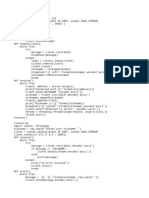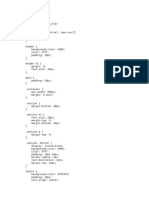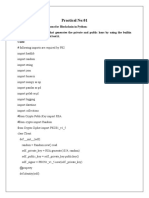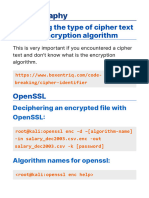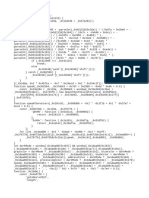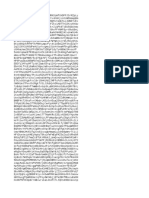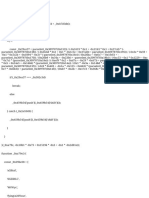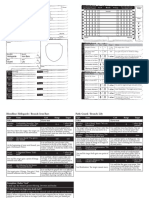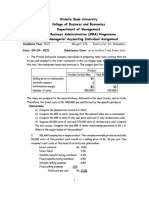0% found this document useful (0 votes)
120 views6 pagesCode
The document contains various cryptographic algorithms including SHA-256 hashing, RSA encryption, Vernam cipher, Vigenere cipher, RC4, Hill cipher, Feistel network, AES, Double DES, and Caesar cipher. Each algorithm is implemented in Python with example usage demonstrating encryption and decryption processes. The document serves as a comprehensive guide to understanding and implementing these cryptographic techniques.
Uploaded by
Vanshika GuptaCopyright
© © All Rights Reserved
We take content rights seriously. If you suspect this is your content, claim it here.
Available Formats
Download as TXT, PDF, TXT or read online on Scribd
0% found this document useful (0 votes)
120 views6 pagesCode
The document contains various cryptographic algorithms including SHA-256 hashing, RSA encryption, Vernam cipher, Vigenere cipher, RC4, Hill cipher, Feistel network, AES, Double DES, and Caesar cipher. Each algorithm is implemented in Python with example usage demonstrating encryption and decryption processes. The document serves as a comprehensive guide to understanding and implementing these cryptographic techniques.
Uploaded by
Vanshika GuptaCopyright
© © All Rights Reserved
We take content rights seriously. If you suspect this is your content, claim it here.
Available Formats
Download as TXT, PDF, TXT or read online on Scribd
/ 6





